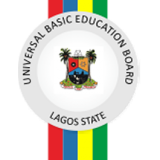Before assuming office on May 29, 2019, Lagos State Governor, Mr Babajide Sanwo-Olu, stated his commitment to improving learning gains in public schools.
He was also intentional about it because education underpins his dreams of further consolidating Lagos’ status as Nigeria and West Africa’s powerhouse.
He launched the innovative and transformational EKOEXCEL (Excellence in Child Education and Learning) program to provide quality education in the public system and upskill teachers by leveraging technology months after assuming office.
Sanwo-Olu did not just stop at implementing plans to improve public primary schools. He introduced Project Zero to tackle the menace of out-of-school children, especially after the Covid-19 pandemic.
The United Nations Children’s Fund (UNICEF) puts the number of Nigeria’s out-of-school population between 10-20 million. Also, 70 per cent of primary school students cannot read or perform basic numeracy tasks at 10. There’s also an insufficient budgetary allocation to education in federal and state budgets and outdated teaching methods, hence the poor teaching and learning conditions across schools.
At the last United Nations General Assembly (UNGA 77), President Muhammadu Buhari acknowledged the low adoption of digital learning. He promised that the government would reach all learners wherever with quality, inclusive learning and skills development opportunities.
62 years since the British left Nigeria, the military and civilian leaders have taken turns trying to improve upon what was left behind by the colonialists. Governments have focused on the infrastructural development in schools and the introduction of school feeding schemes. With over 22 million pupils in 62,406 public primary schools, according to data from the National Bureau of Statistics, and about 10,015 public secondary schools, are these facilities even enough for a population of over 200 million?
Public universities are not exempted as the Academic Staff Union of Universities (ASUU) is on another industrial strike. Sadly, this latest ASUU strike has lasted seven months, with undergraduates idling away.
However, a recent study by Nobel Prize-winning economist Professor Michael Kremer has shown that all is not lost for Nigerian education. It notes that there will be marked improvements if the teaching pedagogy adopted by SUBEB in Lagos (EKOEXCEL), Edo (EdoBEST) and Kwara (KwaraLEARN), in partnership with EdTech solution provider, NewGlobe are carefully adapted and administered.
The Professor states that: “attending schools delivering highly standardised education has the potential to produce dramatic learning gains at scale, suggesting that policymakers may wish to explore the incorporation of standardisation, including standardised lesson plans and teacher feedback and monitoring, in their systems.”
Kremer’s study suggests that if the methodology is replicated across public education systems, the learning gains would be enough to put African children from underserved communities on track to match their peers in countries with incomes three or four times higher.
The study, released in June 2022, two years after Governor Babajide Sanwo-Olu inaugurated EKOEXCEL in all 1012 public primary schools, shows that the Governor made an excellent investment choice. The EKOEXCEL 2020-2021 Endline Fluency and Numeracy Evaluation also confirmed that pupils are making substantial progress in oral reading fluency and foundational numeracy compared to their performance before its commencement.
It showed that an average Primary 3 EKOEXCEL pupil is now reading at nearly the same fluency level as an average Primary 5 pupil from before the launch of the EKOEXCEL programme. The evaluation also affirmed that EKOEXCEL is improving learning over what existed before.
So far, over 18,000 headteachers and teachers have been moved from analogue to digital teaching, using tablets and updated curricula. Over 14,000 teachers from 1,012 public primary schools have been captured under the scheme. The education reform programme has also recorded remarkable gains in enhancing the teacher-pupil interaction experience through technology (eLearning) in Lagos State primary schools.
Another confirmation of the efficacy of the EKOEXCEL methodology is the excellent performance of EKOEXCEL pupils in the National Common Entrance Examination (NCEE) for admission into the first year of Junior Secondary School of federal unity colleges. While the overall best student in the NCEE conducted by the National Examinations Council (NECO) scored 201 out of 210, three pupils of Lagos public primary schools were just five points behind.
Commenting on Nigeria’s 62nd independence and what it means for the future of pupils in public primary schools, Chairman of Lagos SUBEB, who has oversight functions of EKOEXCEL, Hon. Wahab Alawiye King said, “we have made appreciable progress that third parties have verified since we started EKOEXCEL in 2019. There are verifiable increased learning gains among our pupils and more upskilling among teachers. So, I believe that if other states follow the examples of Lagos, we can fix the problems of primary education that international bodies continue to highlight. So, we congratulate all Nigerians as we mark our 62nd Independence anniversary and say we can solve all our education problems.”
If Lagos, Edo and Kwara can successfully adopt this innovative method, nothing stops the Federal government from doing so. It is time Nigeria focused more on improving education and ensuring our children get the best as we are now in a knowledge economy.
This article appeared originally on TheSun, Oct 1, 2022.


